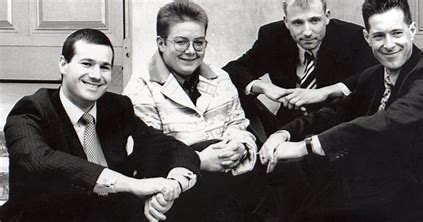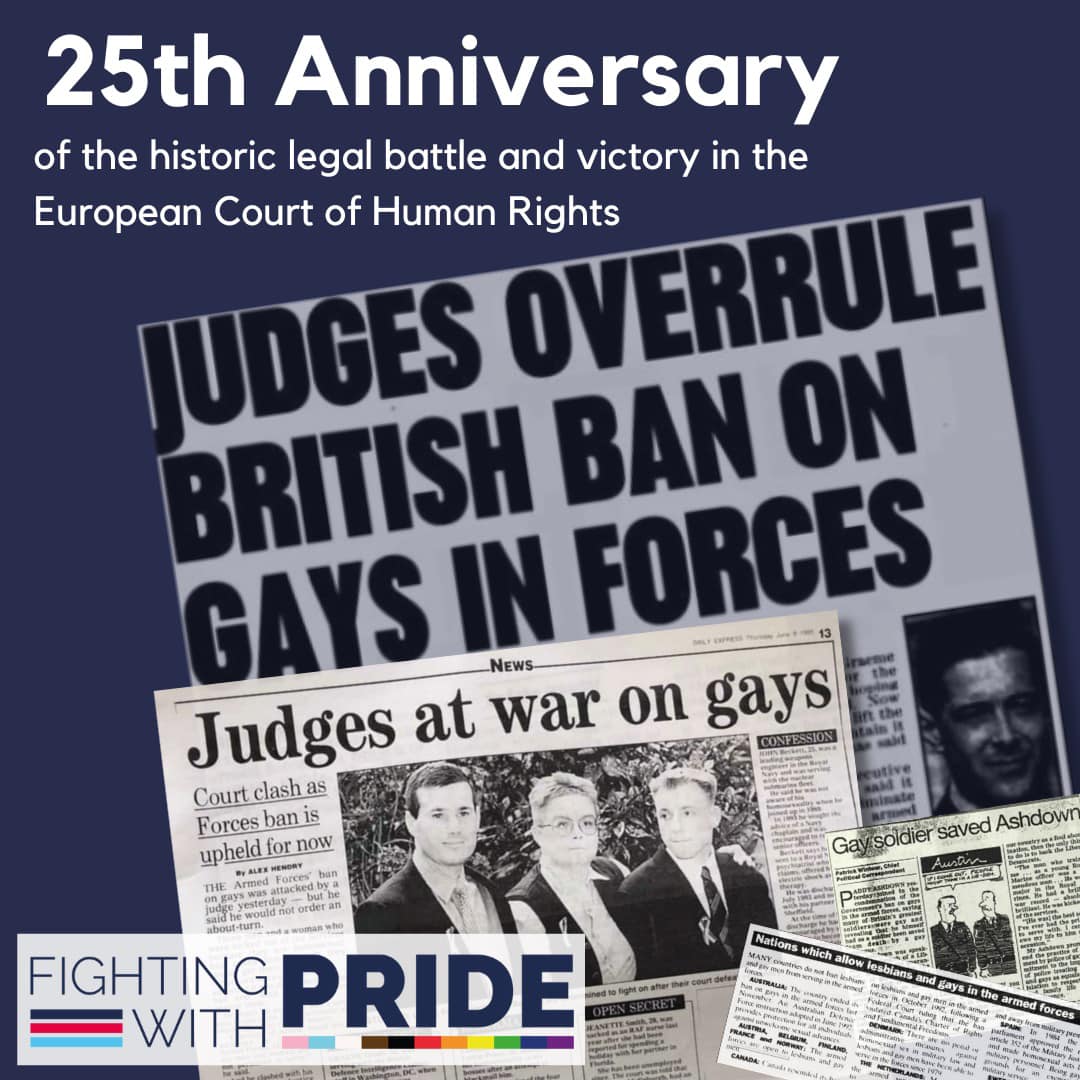The 1967 Sexual Offences Act partly decriminalised homosexual acts ‘in private, provided that the parties have consent thereto and have attained the age of twenty-one’, but added an exemption to the Armed Forces, putting them totally out of step with the new law of the land and resulting in what would become known as the “Gay Ban”.
Individuals outed or accused of being Gay, regardless of sexual orientation or gender identity, would be hunted down and removed from military service. But that would never stop LGBT+ individuals stepping up to serve their country, as they always had. In this new environment, LGBT+ members of the Armed Forces were forced to live shadow personas and secret lives, always with the threat of bullying, assault, investigations by the Armed Forces’ Special Investigations Branches (SIB) and, ultimately, being thrown from service, regardless of rank, role or distinguished or exemplary service. The blanket ban applied to everyone, including those who had joined as teenagers, often when their own sexuality wasn’t yet developed. Hundreds of LGBT+ or accused service personnel were dismissed each year, in the most terrible ways, including being sent to civilian prisons for a crime that did not exist in civilian law.
In 1991, Lieutenant Elaine Chambers of Queen Alexandra Royal Nursing Corps and former Warrant Officer Robert Ely of the Parachute Regiment, themselves both victims of the ban, created a support group known as Rank Outsiders, for veterans who had been thrown out of the armed forces.
Other members included former Royal Navy Lieutenant Commander Patrick Lyster-Todd, who subsequently became its chair and Ed Hall – a former sub-lieutenant in the Royal Navy who had been dismissed for being gay and who sought to persuade Rank Outsiders to mount a legal challenge to the ban.
The plan to campaign politically was voted down by Rank Outsiders, as the organisation was determined to prioritise providing help and support for veterans. Instead, the Armed Forces Legal Challenge Group was formed by Ed, supported by Rank Outsiders, and later by LGBT+ rights campaign group Stonewall.
The gathering number of legal challenges supported by Stonewall, human-rights campaigning group Liberty and Bindmans and Tyndallwoods solicitors, steadily chipped away at the power of the armed forces to maintain a ban which was irrational in concept, and cruel in practice.
Ed Hall’s book on the ban, entitled We Can’t Even March Straight, was published in May 1995 and helped to build momentum and bring together an increasing number of cases – four of which were ultimately selected for to go forward, first to the UK courts, and ultimately to the European Court of Human Rights.
These cases were those of John Beckett, Graeme Grady, Duncan Lustig-Prean and Jeanette Smith, all of whom had exemplary military records. They were all discharged between 1993 and 1995 solely because of their sexual orientation and each of them applied to the High Court of England and Wales to quash the discharge as unlawful.
Each application was dismissed by the High Court in 1995 and their appeals were then dismissed by the Court of Appeal, with the Judicial Committee of the House of Lords refusing permission to appeal to the House of Lords.
In 1996 the Ministry of Defence set up the Homosexuality Policy Assessment Team (HPAT) to internally assess the armed forces policy on homosexuality. It subsequently sought to justify the ban on the basis that gay personnel in the armed forces posed a threat to their “fighting power” and that any gay people in the forces would risk being beaten up. This report helped to prevent parliament stepping in at this stage to legislate for change.
Meanwhile, in the same year, Graeme, Duncan, Jeanette and John took their cases to the European Court of Human Rights (ECHR) in Strasbourg, alleging breaches of the European Convention on Human Rights, including, most importantly, a submission that the investigations which took place and their subsequent administrative discharge ‘on the sole grounds that they were homosexuals’, constituted a violation of their right to respect of their private life under Article 8 of the Convention.
The ECHR examined the facts of the cases in great detail – amongst them the shocking manner of SIB investigations – they looked at the UK’s relevant laws, and the Ministry of Defence’s HPAT report, with the latter dismissed as providing any justification for the continuation of the ban. The court was asked by their lawyers to consider if there was any evidence whatsoever that being lesbian or gay had a negative impact on their military service.
Finally, after years of campaigning in the media, in parliament, and in the courts, on 27th September 1999 the European Court of Human Rights published its judgments in favour of the applicants, and this was followed on 12th January 2000 by the Secretary of State for Defence Geoff Hoon announcing the end of the ban.
In further judgements, in July 2000 the European Court of Human Rights awarded financial ‘just satisfaction’ to each of the four applicants for loss of earnings and loss of the benefit of the non-contributory service pension scheme.
The lifting of the ban meant that gay personnel could now serve openly in the Armed Forces. Two transgender personnel, Joanne Wingate (Army) and Caroline Paige (RAF), had successfully fought separately for permission to serve openly and did so from the beginning of 1999; meaning that all LGBT+ service was now permitted, but that didn’t mean they were all suddenly and universally embraced as equals or that the prejudice disappeared. The journey to full inclusion would take several more years.


25th Anniversaries of LGBT+ Military Inclusion Part Two – The Lifting of the Ban; will follow on 12th January 2025.
A preview can be found in Fighting With Pride’s Review and Directory 2024, accessible on our website. FWP Review-Directory (fightingwithpride.org.uk)